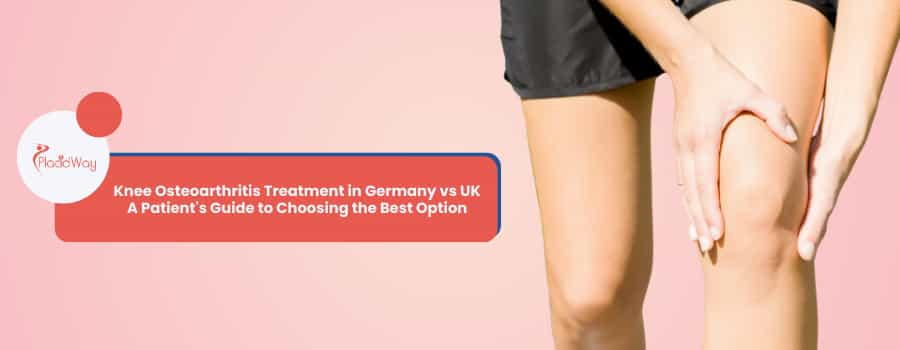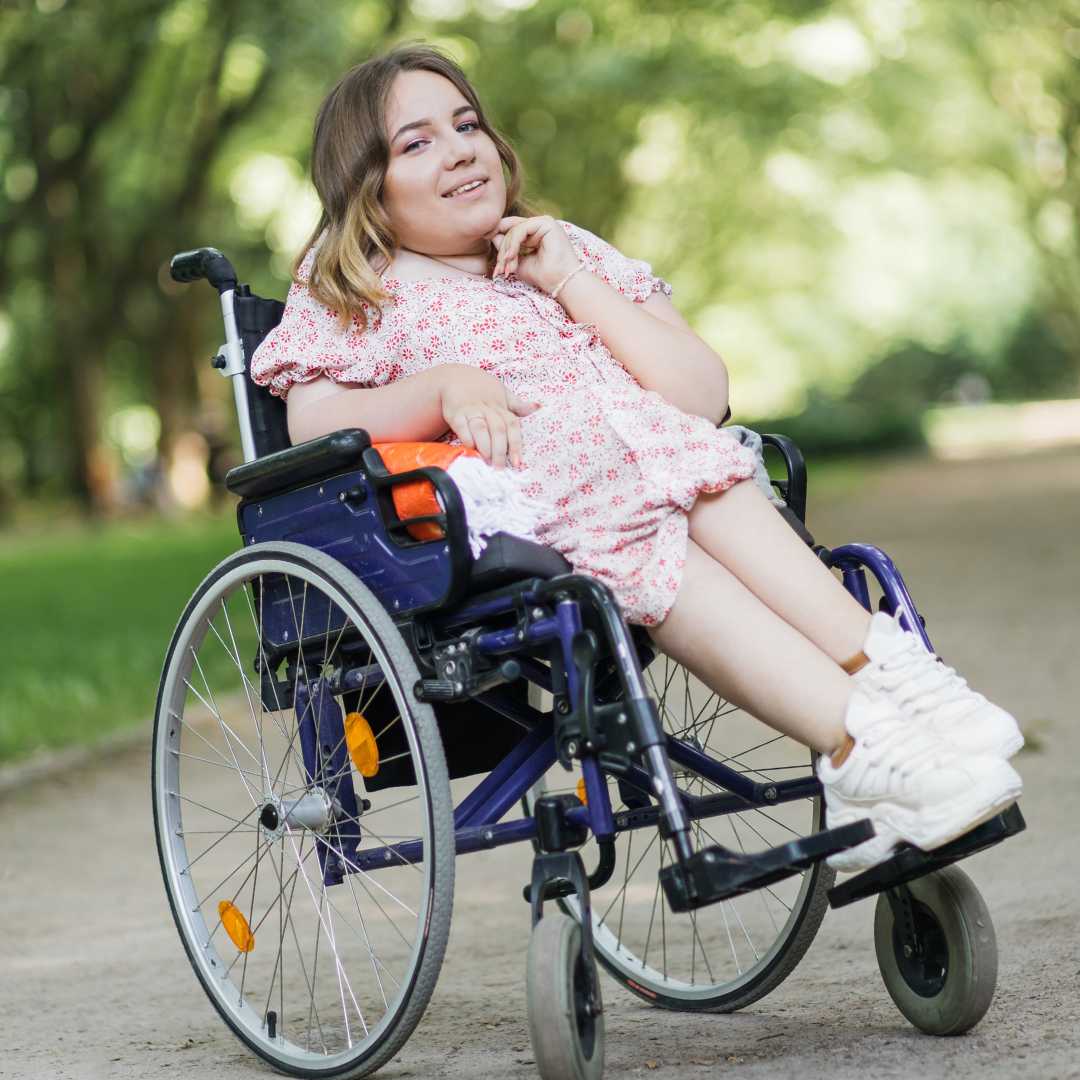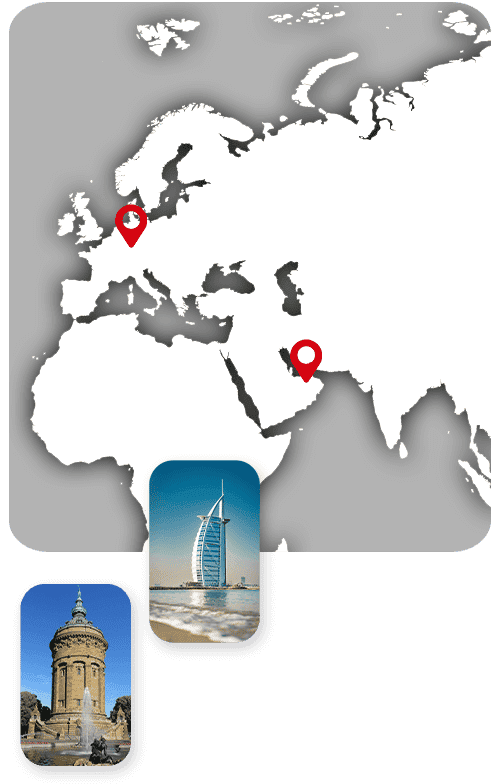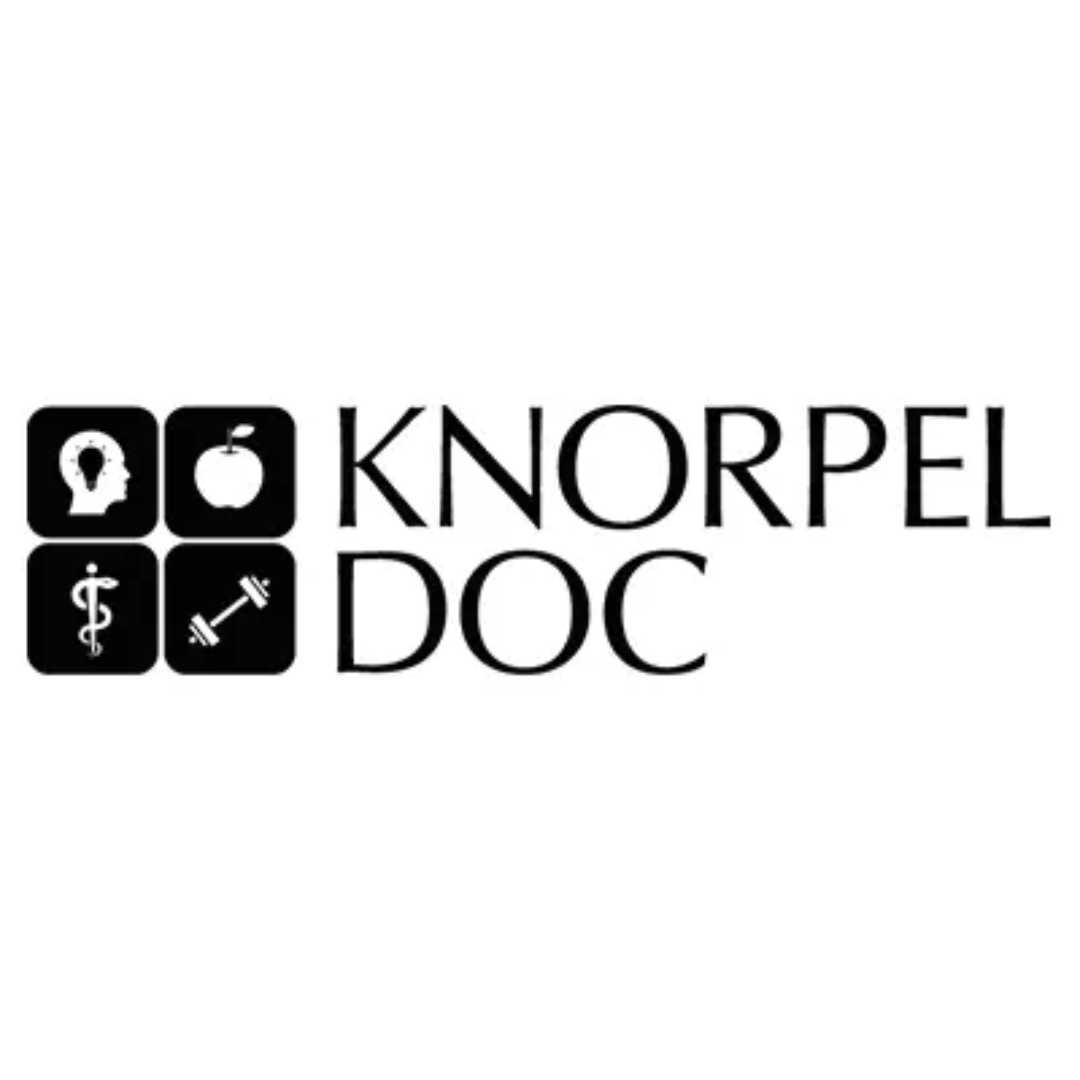
Navigating knee osteoarthritis treatment options can be complex. This guide offers a detailed comparison of seeking advanced Knee Osteoarthritis Treatment in Germany and the UK, focusing on patient needs, costs, and quality.
Choosing Your Path to Pain Relief: Germany's Precision vs. UK's Established Care
For individuals suffering from knee osteoarthritis, the decision to seek treatment abroad often hinges on a balance of cost, quality, accessibility, and the type of advanced care available. Germany and the United Kingdom stand out as two of Europe's premier destinations for orthopedic treatment, each offering unique advantages for international patients.
Germany has carved out a reputation for its cutting-edge medical technology, highly specialized orthopedic surgeons, and comprehensive rehabilitation programs, particularly for complex conditions like advanced knee arthritis. Patients often seek German clinics for innovative therapies and efficient, high-standard care without the long waiting lists found in some public healthcare systems.
The United Kingdom, with its globally respected National Health Service (NHS) and a robust private healthcare sector, offers a well-established and familiar environment for many English-speaking patients. While the NHS provides cost-free care for residents, private clinics in the UK boast renowned specialists, quicker access to treatment, and state-of-the-art facilities, appealing to those seeking prompt and personalized attention for their knee pain. This detailed comparison will help you weigh the options for effective knee osteoarthritis treatment in Germany and the UK.
Knee Osteoarthritis Treatment in Germany vs UK - Key Differences
Germany: Core Strengths in Advanced Orthopedic Care for Knee Arthritis
Germany is globally recognized for its robust healthcare system, particularly in orthopedics. Its clinics and hospitals are characterized by a deep commitment to cutting-edge technology and research, making it a prime destination for patients seeking the most advanced knee osteoarthritis treatments.
Key capabilities in Germany include a high prevalence of minimally invasive knee surgery techniques, such as arthroscopy and robotic-assisted knee replacement surgery, which promise faster recovery times and less post-operative pain. German orthopedic specialists are often at the forefront of developing and implementing new surgical approaches and materials, including custom-made knee implants.
Beyond surgery, Germany excels in comprehensive, integrated rehabilitation. Many clinics offer specialized rehabilitation centers where patients can recover and undergo intensive physiotherapy immediately after their procedure. This holistic approach, from diagnosis to surgery and recovery, ensures optimal long-term outcomes for patients with knee arthritis, focusing on restoring mobility and quality of life.
United Kingdom: Core Strengths in Established Knee Pain Treatment
The UK's healthcare system is well-regarded internationally, offering a blend of public (NHS) and private options for knee osteoarthritis treatment. For international patients or those opting for private care, the UK provides a familiar and often luxurious environment with access to highly skilled orthopedic surgeons.
One of the UK's main strengths lies in its established medical infrastructure and the global reputation of its medical professionals. Many UK-trained orthopedic surgeons are world leaders in their fields, contributing to research and developing best practices. Private hospitals in the UK are known for their patient-centric approach, offering comfortable single rooms, excellent nursing care, and a focus on personalized treatment plans.
While the NHS faces challenges with waiting lists, the private sector offers immediate access to consultations and surgery for knee pain, including total and partial knee replacements. The ease of communication due to the English language and the cultural familiarity often make the UK a preferred choice for patients from North America, Australia, and parts of Europe and the Middle East seeking reliable and high-quality orthopedic treatment.
Knee Osteoarthritis Treatment in Germany - Pros and Cons
Pros
- Advanced Medical Technology: Access to cutting-edge diagnostic tools, robotic-assisted surgery, and patient-specific implants for knee replacement.
- Specialized Orthopedic Expertise: Highly trained surgeons often specialize in specific joint procedures, leading to greater proficiency and better outcomes for knee conditions.
- Comprehensive Rehabilitation: Integrated recovery programs with dedicated rehab clinics ensure optimal post-operative functional recovery.
- Innovative Regenerative Therapies: Strong research and application of PRP (Platelet-Rich Plasma) and stem cell therapies for knee arthritis.
- Efficient Treatment Paths: Minimal waiting times in the private sector, allowing for prompt scheduling of consultations and surgeries.
- Cost-Effective for Quality: Often offers a high standard of care at a more competitive price point compared to some other Western nations.
Cons
- Language Barrier: While major clinics have English staff, navigating outside medical settings might require basic German or a translator.
- Travel Logistics: Longer travel for North American patients compared to the UK; requires more extensive travel planning.
- Cultural Differences: The healthcare approach can be more direct and clinical, which some patients might find less 'personal' compared to other regions.
- Less Familiarity for Some: For patients primarily from English-speaking countries, the system and experience may feel less familiar than in the UK.
Knee Osteoarthritis Treatment in the UK (Private) - Pros and Cons
Pros
- No Language Barrier: Native English-speaking environment ensures clear communication throughout the treatment process.
- World-Renowned Specialists: Access to highly respected orthopedic surgeons with international reputations for excellence in knee surgery.
- Established Private Healthcare: A well-developed private sector offers fast access to appointments, diagnostics, and surgical procedures for knee pain.
- Patient-Centric Approach: Private clinics often provide a very personalized, comfortable, and luxurious experience, including single rooms and dedicated care.
- Familiar Cultural Environment: For patients from English-speaking countries, the cultural setting and societal norms are often more familiar.
- Geographical Convenience: Shorter travel times for patients from North America compared to some Central European destinations.
Cons
- Higher Private Costs: Private knee osteoarthritis treatments in the UK can be significantly more expensive than in Germany, particularly for complex procedures or extended stays.
- NHS Waiting Lists: While not directly affecting private patients, the public system's long waiting lists can create a general perception of slower access to care.
- Less Integrated Rehab: While excellent physiotherapy is available, comprehensive, live-in rehabilitation facilities are less common than in Germany.
- Availability of Advanced Therapies: While present, the breadth and depth of some innovative regenerative treatments might be more extensively researched and applied in Germany.
Deeper Dive: Treatment Modalities and Innovations for Knee Pain
Knee osteoarthritis treatment encompasses a spectrum from conservative management to surgical intervention. Both Germany and the UK excel in offering various options, but their focus areas can differ.
Conservative Treatments:
Both countries provide excellent physiotherapy, pain management, medication, and injections (corticosteroids, hyaluronic acid). Germany, however, often integrates these with naturopathic approaches and specialized spa therapies as part of a holistic treatment plan, drawing on its rich tradition of medical wellness.
Regenerative Medicine (PRP, Stem Cell Therapy):
Germany is a global leader in regenerative therapies for knee arthritis. Clinics in cities like Berlin, Munich, and Frankfurt are actively involved in research and application of Platelet-Rich Plasma (PRP) and various forms of stem cell therapy (from adipose tissue or bone marrow) to help repair damaged cartilage and reduce inflammation. These treatments are often more readily available and integrated into comprehensive care plans in Germany. The UK also offers these therapies, primarily in private clinics, but sometimes with more stringent regulatory frameworks or less widespread adoption.
Surgical Interventions:
- Arthroscopy: Both countries perform this minimally invasive procedure for diagnosis and minor repairs.
- Partial Knee Replacement (Unicondylar Knee Arthroplasty): Offered in both, allowing for preservation of healthy parts of the knee.
- Total Knee Replacement (TKR): The most common surgical solution for severe osteoarthritis. Germany stands out for its extensive use of robotic-assisted knee surgery (e.g., MAKOplasty, ROSA Knee System), patient-specific instrumentations, and ceramic or highly cross-linked polyethylene implants, which can lead to greater precision, faster recovery, and potentially longer implant life. UK private clinics also utilize robotic surgery but it might not be as universally available as in Germany's specialized centers.
- Osteotomy: A procedure to realign the knee joint, more commonly considered in younger, active patients.
Germany's orthopedic sector often emphasizes maximum functional restoration through early and aggressive rehabilitation protocols, often leveraging specialized orthopedic rehabilitation hospitals. The UK's approach is similarly robust, with a strong emphasis on evidence-based practice and patient education, particularly in the private sector where individualized physiotherapy is a cornerstone of recovery.
The Patient Journey: What to Expect During Your Knee Treatment
Experience in Germany
In Germany, the patient journey is often highly structured and efficient. From initial consultation, through diagnostics, to surgery and intensive rehabilitation, every step is meticulously planned. Patients often experience a "medical campus" environment, where specialists, diagnostic facilities, and rehab centers are co-located or closely linked. Communication for international patients is typically handled by dedicated patient managers who assist with everything from appointments to travel logistics and interpretation. The focus is on clinical excellence and a swift, effective return to mobility, often involving a post-operative stay in a specialized rehabilitation clinic for several weeks.
Experience in the UK (Private)
In the UK's private sector, the patient experience emphasizes comfort, personalized care, and a more 'boutique' feel. From the moment you step into a private hospital, you can expect plush surroundings, private en-suite rooms, and dedicated nursing care. Consultations are thorough, and surgeons take time to explain procedures in detail, often with an emphasis on patient involvement in decision-making. Post-operative care typically involves a shorter hospital stay followed by outpatient physiotherapy sessions. The ease of communication in English, combined with the familiarity of the cultural environment, often makes for a seamless and comfortable experience for international patients.
Real Patient Experiences: Success Stories
John D., USA
Knee Replacement in Munich, Germany
"My severe knee arthritis had me limping for years. I chose a clinic in Munich for a robotic knee replacement. The precision was incredible, and the post-op rehab was unlike anything I'd seen. I'm now hiking again, pain-free. Worth every penny for the advanced care in Germany."
Amelia S., Canada
Knee PRP Therapy in London, UK
"For my early-stage knee osteoarthritis, I wanted to avoid surgery. I found a fantastic private clinic in London offering PRP therapy. The doctor was so thorough, and the entire staff was wonderful. My knee pain has significantly reduced, and I'm back to my daily walks. The ease of language was a huge plus."
Michael W., Australia
Stem Cell Treatment in Berlin, Germany
"After researching stem cell therapy for my knee, Germany stood out. I had my treatment in Berlin, and the medical team was incredibly knowledgeable. The holistic approach, combining the therapy with specific exercises, has given me so much more mobility and less stiffness. The level of care was truly world-class."
Lisa T., Ireland
Knee Arthroscopy in Manchester, UK
"My knee was locking up, and the private clinic in Manchester offered a fast solution. I had an arthroscopy, and the entire process was seamless. From the initial consultation to the follow-up, the communication was excellent. I was back on my feet much quicker than I expected."
Comprehensive FAQ Section for Knee Osteoarthritis Treatment Abroad
Is knee osteoarthritis treatment in Germany and the UK safe?
Yes, both Germany and the UK boast high-quality healthcare systems with numerous reputable orthopedic clinics and hospitals. Germany is known for its advanced technology and specialized rehabilitation, while the UK offers a well-established system through both NHS and private providers. Always choose accredited facilities with experienced specialists for optimal safety.
How much can I save on knee treatment in Germany compared to the UK (private options)?
The cost of private knee treatments, such as total knee replacement, can vary significantly. Generally, Germany often offers competitive pricing for advanced orthopedic procedures compared to private clinics in the UK, especially for specific regenerative therapies. Savings can range from 10% to 30% depending on the procedure and clinic, but it's crucial to get detailed quotes from both.
Do I need to speak German to get treatment in Germany?
While knowing some German is helpful, most major private clinics and hospitals catering to international patients in Germany have English-speaking staff, doctors, and patient coordinators. Communication should generally not be an issue for your medical journey.
What are the waiting times for knee replacement surgery in the UK?
In the UK, waiting times for knee replacement surgery on the National Health Service (NHS) can be substantial, often ranging from several months to over a year, depending on the region and specific hospital. Private treatment offers significantly shorter waiting times, often within weeks.
Are advanced knee therapies like PRP or stem cells available in both countries?
Yes, both Germany and the UK offer advanced regenerative therapies for knee osteoarthritis, including Platelet-Rich Plasma (PRP) and various forms of stem cell therapy. Germany is particularly renowned for its research and application of these innovative treatments, often integrating them into comprehensive rehabilitation plans. Availability and specific regulations might vary.
What is the typical recovery period after knee replacement surgery?
The typical recovery period after a total knee replacement is around 6 weeks for initial recovery, with full recovery and strength building continuing for 3 to 6 months. Both Germany and the UK emphasize comprehensive physiotherapy and rehabilitation programs to ensure optimal outcomes.
Will my travel insurance cover medical treatment for knee osteoarthritis abroad?
Most standard travel insurance policies do not cover planned medical treatment abroad. You would need to seek specialized medical travel insurance that explicitly covers elective procedures for knee osteoarthritis. It's crucial to check with your insurance provider well in advance.
How do German clinics differ from UK private clinics in patient experience?
German clinics often prioritize efficiency, cutting-edge technology, and intensive, structured rehabilitation. UK private clinics are known for personalized care, comfortable facilities, and generally a more 'hotel-like' experience. Both aim for excellent medical outcomes but might have slightly different approaches to patient comfort and follow-up.
Can I combine knee treatment with tourism in Germany or the UK?
Yes, many patients choose to combine their medical treatment with tourism. Germany offers historical cities, scenic landscapes, and cultural attractions, particularly around spa towns known for rehabilitation. The UK provides vibrant cities, countryside, and rich history. Always plan your sightseeing activities around your treatment and recovery schedule to avoid overexertion.
What are the visa requirements for medical treatment in Germany or the UK?
For short stays (under 90 days) for medical treatment, many nationalities (e.g., US, Canadian, Australian citizens for Germany; EU/EEA citizens for UK) can enter on a tourist visa. However, it's always recommended to check the specific visa requirements for your nationality with the respective embassy or consulate well before your travel date, especially if your stay might be longer.
Ready to Take the Next Step for Your Knee Health?
Choosing the right destination for your knee osteoarthritis treatment is a crucial decision that can profoundly impact your recovery and quality of life. Whether you're drawn to Germany's advanced technology and comprehensive rehabilitation or the UK's established expertise and patient-centric private care, PlacidWay is here to guide you.
Our dedicated Care Team specializes in connecting international patients with world-class, pre-vetted orthopedic clinics in Germany, the UK, and other top medical destinations. We offer personalized comparisons, transparent pricing, and assist with all aspects of planning your medical journey. Let us help you navigate the complexities, so you can focus on regaining your mobility and living pain-free.








.png)
.png)
.png)
.png)





Share this listing